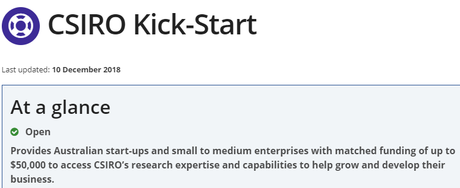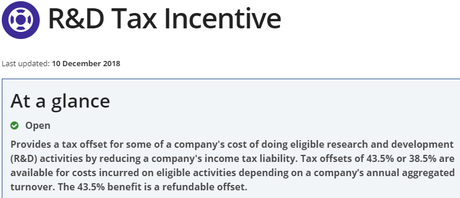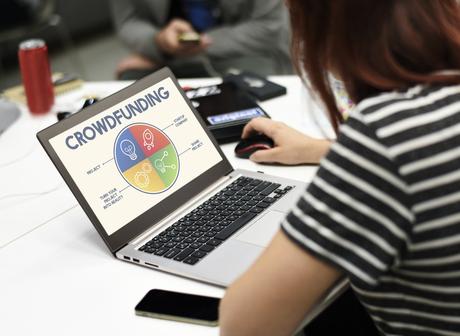Getting your startup funded is not the end of the story, it’s simply the beginning of a new chapter. From government funding, angel investment and seed funding to series A and B financing, not all funding is equal.
One of the biggest challenges new business owners face is how to find financing to get their company off the ground.
Below, we have put together a complete guide to help you find startup funding in Australia in 2019.
Free government grants for small startup businesses
For startups and early-stage companies, the Australian government grants or tax offsets can sometimes be the lifeline needed to continue operations. Assistance could come in the form of a grant, tax credits, or incentive payments.
Some points to be noted are:
- Apart from starting a business, there are grants for business activities such as expansion, training, research and development, importing and exporting, commercializing a specific product and more
- Governments also offers various free and low-cost business advisory services, financial and tax advice, loans and other support. This takes the form of cheap loans, networking, coaching and mentoring. These can be even more important to startups than winning grant money.
Government grants are available for free. Only trust official websites with “.gov.au” suffix.
Never pay a fee. If you are paying for access, you are being scammed.
Some of the prominent grants are discussed below.
The Entrepreneurs’ Programme

What it does –
- Gives you access to a network of over 100 experienced private sector advisers and facilitators around Australia, and collaboration opportunities
- Lets you get co-funded grants for commercializing products and services
- Offers funding for growth, business evaluation services, supply chain facilitation, growth and opportunity consulting and ongoing business guidance and review
Eligibility –
- Your business must currently be operating in the food and agriculture, mining, energy, advanced manufacturing or medical technology and pharmaceutical sectors
- OR you must be a tourism business operating in Northern Australia
- OR you must be committed to and capable of operating in one of those areas in the future
To find relevant offers and fill up your grant calendar, or read on for startup grants that might be of interest click here.
CSIRO Kick-Start

It sponsors research activities of small and medium enterprises (SMEs) and startups in Australia via its Kick-Start program. Grantees of this particular program have access to funding up to AU$50,000 which can be used to cover the costs of research projects, salaries, travel and lodging fares.
To apply : click here
Export Market Development Grant (EMDG)

The Australian Government also encourages local businesses to export into new overseas markets. The Export Market Development Grant supports businesses who have spent a minimum of $15,000 on marketing their business overseas. Eligible businesses can claim up to 50% of these costs back.
To apply : click here
Research and Development Tax Incentive

This aims to help all businesses stay ahead of the curve through a tax offset that encourages innovation in even the smallest ventures. It allows businesses to annually claim back prior year’s R&D related expenses.
If your startup concept is centered around innovation – whether this is creating a product, process, algorithm, or testing hypotheses for an unknown outcome, there’s a chance you could be entitled to have over 40% of your development expenses refunded.
Applications are ongoing but companies must register for R&D activities within 10 months of their income year first.
To apply click here
State government grants for Australian startups of small businesses
While there a numerous programs and grants for all of Australia’s small and medium-sized businesses, each state and territory has its own selection of government grants especially for businesses within their borders.
Find a comprehensive list of all the best government grants available in each state and territory respectively here.
Also Read :4 Reasons Why Australia Is The Best Place For Your Startup!
Other fundings
Accelerators
If your startup is still in a fledgling state and you need some support, an accelerator may be a good option.
Accelerators accept a cohort of startups for a set amount of time and funding. An accelerator program can give the founding team cash, mentorship and networks that speed up the team’s learning and growth.
List of business & startup accelerators in Australia.
Accelerators usually offer startup teams less than A$100,000. At MAP, top startups get A$20,000, office space and mentoring, Workman said. Many accelerators take some equity — an ownership interest in the company — in exchange for their funding, although MAP does not.
Angel investors
These are typically high-net worth individuals that write cheques of between A$50,000 to A$100,000. Sydney Angels, for example, is an organisation that connects its member investors with early-stage startups.
Often this money is combined with a few other sources into what some call an early seed round — money founders can use to get things moving.
List of Australian Angel investors
Seed round
A seed round is usually the first time startups raise what’s known as institutional investment from a venture capital fund. It can also be combined with cash from a group of angels or a seed fund.
This will help a startup to start to grow and find an audience. It usually raises A$500,000 to A$2 million, although it can go higher. A seed round usually occurs when a product is out in the market in the hands of a core group of users.
List of top Australian Seed Stage Companies
Series A funding
Refers to the first round of significant capital and should help startups to grow rapidly. Instead of acquiring 100 customers in a month, you’ll start trying to acquire 1,000 customers a month.
Series A can raise A$3 million to A$7 million but to get to it, you want to be at around $2 million annual recurring revenue.
List of Series A funding companies
Series B funding
If you’re still growing rapidly and need a cash bump to maintain momentum, it may be time for a Series B round — the next round after Series A.
Between Series A and B, startups should be figuring out how to sell their product at a significant scale and look at A$3 million to A$5 million in annual recurring revenue.
Series B is also the stage when overseas investors might get involved.
Find more information about Series B funding.
Bootstrapping
Growing your business without outside investment, is known as bootstrapping.
Wooing investors takes up a lot of energy and you may give a portion of your ownership of the company each time you raise money. In bootstrapping you’ll not only be able to retain more control over the decisions but also spend more time on building a product and finding customers.
One problem with bootstrapping is that startups may not be able to grow quickly. You risk being outplayed by another startup who did accept a large funding found.
Crowdfunding
Crowdfunding platforms essentially allow business owners to ask for donations, while others will put you in contact with a wide net of potential investors.

Learn how to plan a successful crowdfunding
One of the unique aspects of crowdfunding is that you can offer innovative benefits to your investors such as first-release products. This allows you to secure financing without necessarily relinquishing ownership of your company or business idea.
Do you need a custom, native iOS or Android mobile app? Check out our Business-ready powerful app solutions here.

